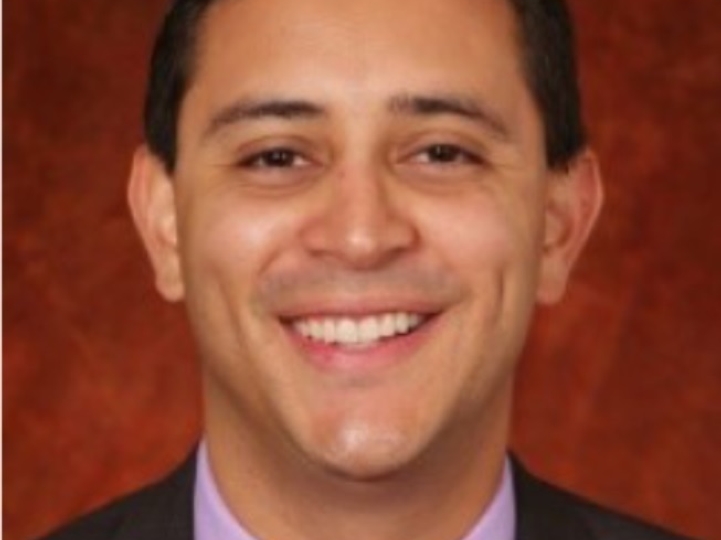We Are Not Imposters: Finding the Truth About Being Enough
Administrators in Graduate and Professional Student Services New Professionals and Graduate Students Student Leadership Programs New Professional
June 2, 2020
JCC Connexions, Vol. 6, No. 2, May 2020
Fostering Moral Development: An Ongoing Column in JCC Connexions

A couple of years ago when I attended the ACPA Annual Convention, I heard Dr. Larry Roper speak while accepting his lifetime achievement award. As part of his remarks, Dr. Roper mentioned that even as he was accepting the award, he grappled with "imposter syndrome." He felt he had not done enough or was not at a skill level to merit receiving such a prestigious award and he did not feel like he was “enough.” I sat in my chair absolutely stunned. I consider Dr. Roper one of the all-time great higher education practitioners, full of wisdom, knowledge, and perceptiveness from which many in our profession have learned. To hear someone as insightful as he grapple with imposter syndrome and feeling like he was not "enough" thoroughly shocked me.
Reflection on Successful Leaders
Not too long after hearing Dr. Roper speak, I realized I had to think about and unpack why I was professionally “shaken” by Dr. Roper’s statement. Through a lot of reflection, I was somewhat taken aback about what I realized. I recognized I had to wrestle with my conceptions about leaders and leadership. To have to reexamine my views on leaders and leadership was a surprise to me because despite having spent years studying leadership and writing a dissertation about it, I still in my daily practice held onto some perspectives about successful leaders as always being supremely confident, headstrong, and inherently skilled people.
Successful Leaders Make Mistakes
I learned I had to work through my skewed perspective that accomplished leaders never made mistakes, that they always made the right, thoughtful decisions after careful, critical consideration of all of the available information. The idea that admirable higher education leaders like Dr. Roper are people who bring with them their flaws, insecurities, “isms,” and imperfections was something I understood conceptually but still had not fully internalized. From the outside, when I think about higher education professionals who have achieved a considerable degree of success in our field, I still sometimes fall into the trap of thinking that they achieved success partly due to their innate ability to be “the perfect leader.”
Successful Leaders Have Doubts
Another false belief I had held about leadership was the notion that accomplished leaders think they are enough for any new job or task they undertake. I had felt that leaders projected strength and confidence out of a personal sense of self-assuredness.
But when I dig even deeper than the surface, I understand in a more meaningful way the other reason Dr. Roper’s words landed on me so profoundly. The truth of the matter is that Dr. Roper’s words resonated so powerfully with me because of just how much I have struggled with feeling like I was "enough," whether it is personally or professionally. Hearing him describe having vulnerable feelings similar to mine was not what I am used to seeing or experiencing. I think that imposter syndrome is, in many ways, connected to shame, and shame works in keeping someone oppressed by refusing to name what the true, underlying issue is. And the issues of insecurity that I experience were put front and center by Dr. Roper in that space. I learned I was shocked not because Dr. Roper has struggled with self-doubt, but because my shame has taught me to hide and avoid the self-doubt I feel, not to name, identify, and challenge it.
Are We Good Enough?
I know that in talking with my friends and colleagues, fighting the shame of feeling like an imposter, someone who is not “good enough,” is a battle that so many of us fight. Like others, I worry that I am not good enough for my job. I get nervous that I am not good enough as a partner or family member. I agonize and overanalyze the decisions I make, wondering if what I believe, how I think, and how I interact with others is good enough to be accepted for who I am. I at times wonder when my family, friends, and co-workers will finally realize that I am fraudulently perpetrating the lie of being a good, effective, competent leader.
I then stop myself. I breathe. I continue my search for truth. It is only then that I realize how much courage, strength, and self-reliance it takes for someone like Dr. Roper to do what he did. To be able to say in such an eloquent manner to a room full of strangers one of the most important things that often goes unsaid takes an immense amount of courage and life experience.
Openness to Doubt
Everyone struggles with feeling like enough, and we might struggle with it for the entirety of our careers. Whenever I do not feel like enough, I am reminded of Dr. Roper’s message about not feeling like enough and realize that even if I ever receive a life-time achievement award, I will probably still struggle with feeling that I am not enough, as he did. By being open about it, Dr. Roper inspired me to acknowledge my insecurities, keep doing my best, and to incorporate vulnerable bravery into my life and career. Doing that is the best I can do, which makes me enough. That’s what I will keep in mind moving forward. It may not be the best plan, but it’s the one I’ve got. And for now, that’s enough.